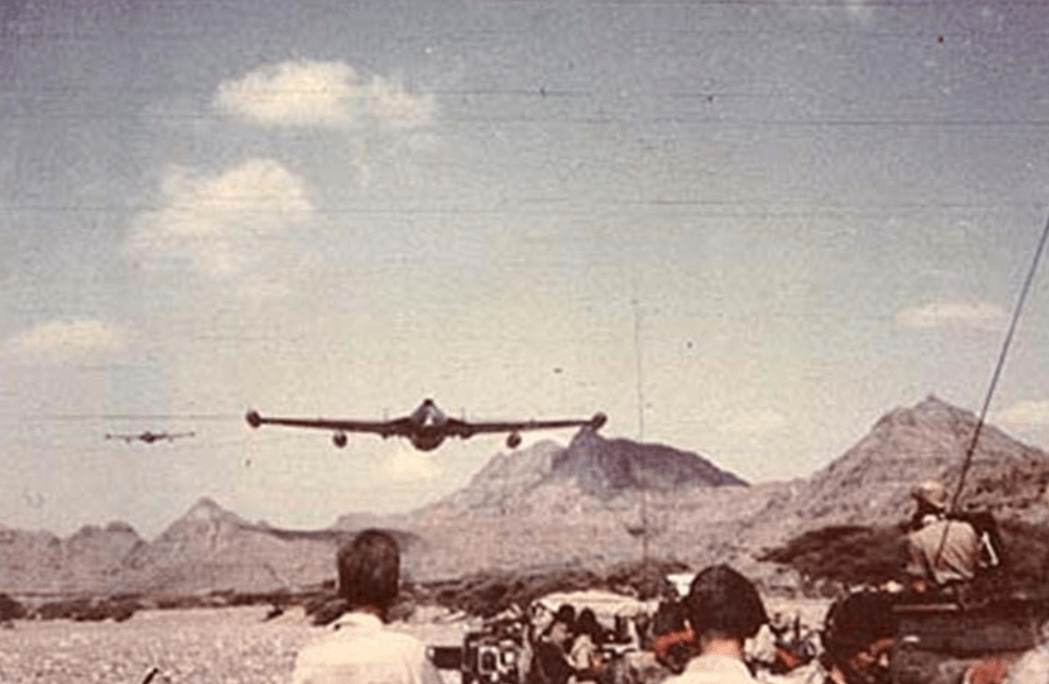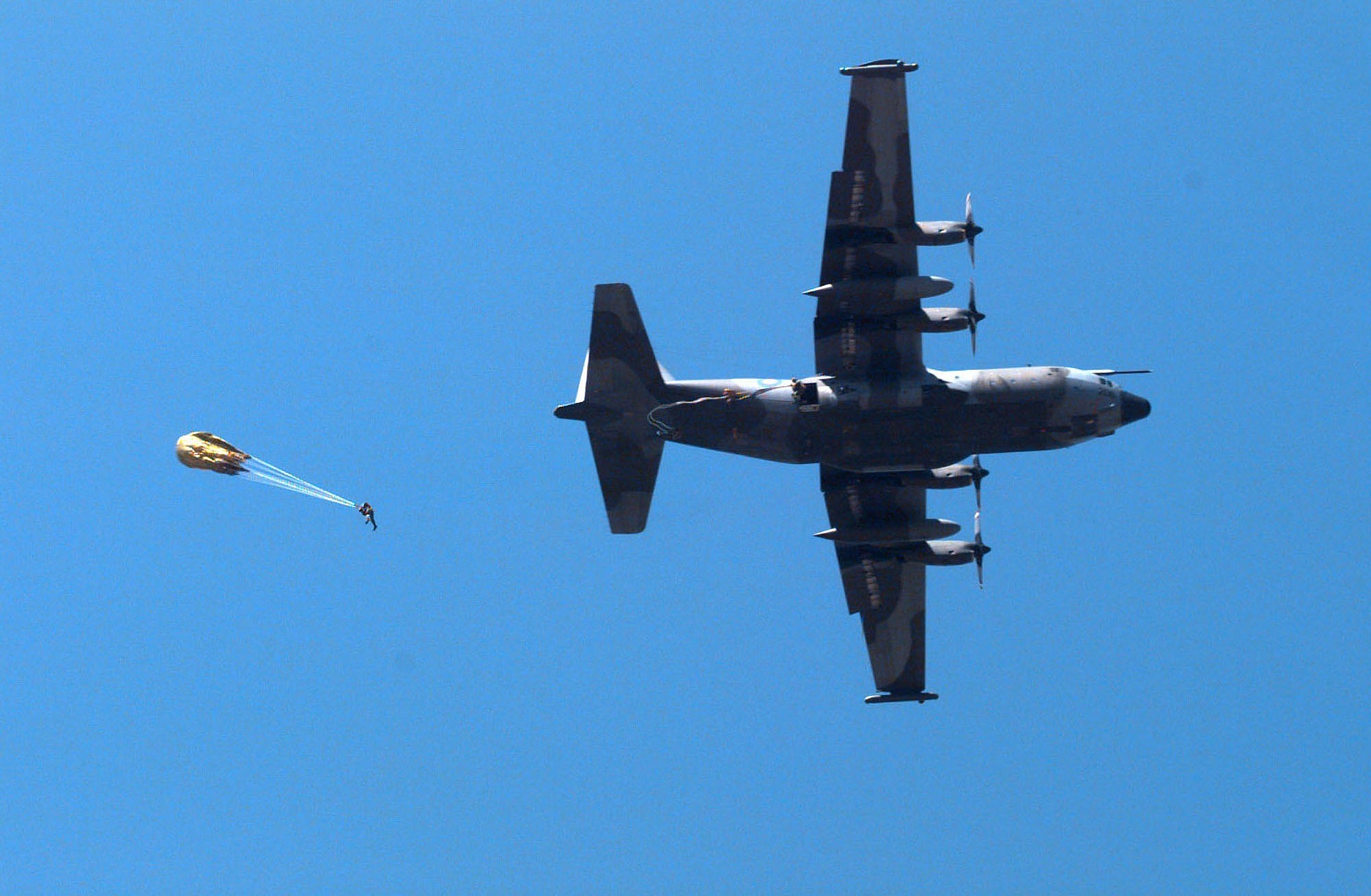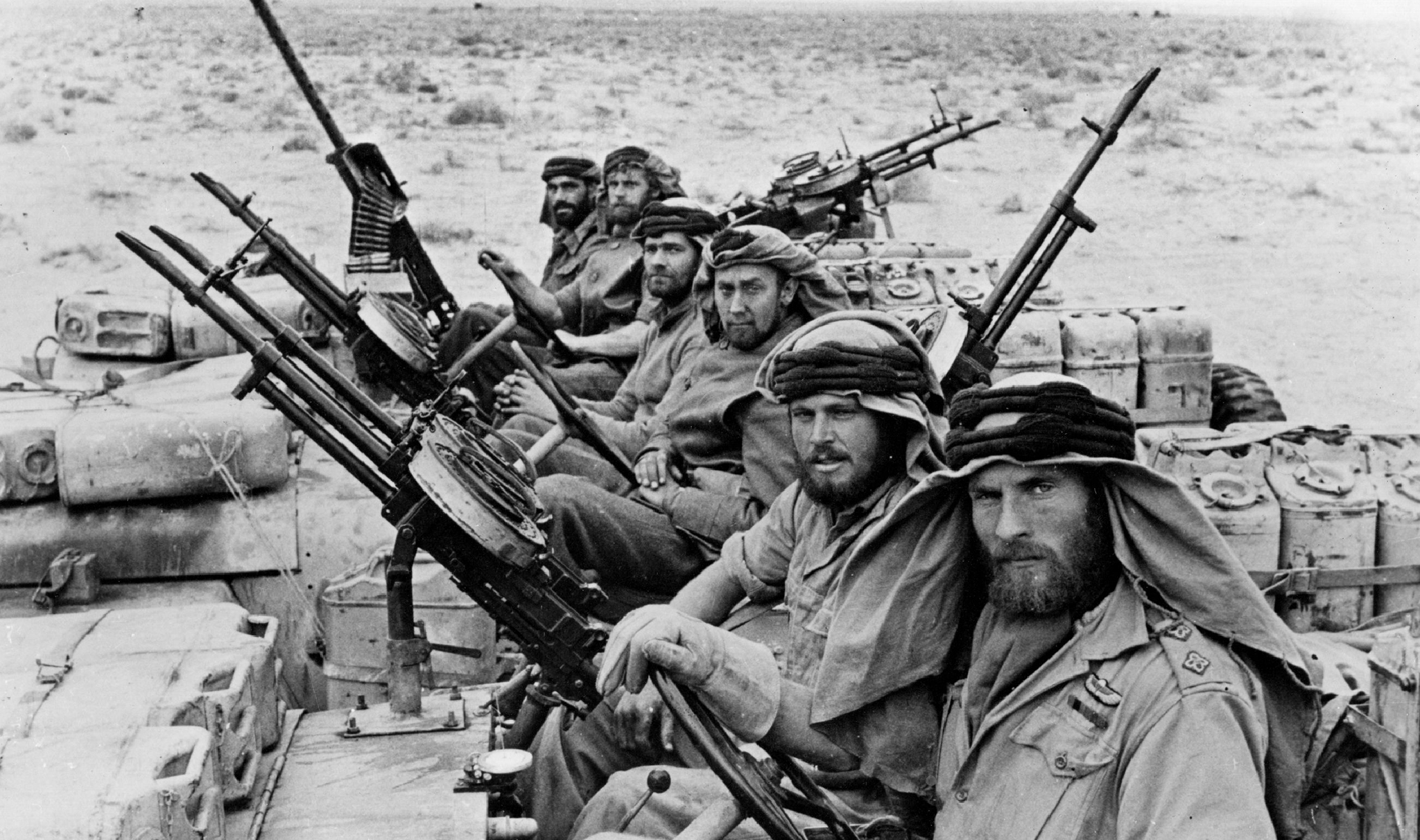- New report finds numerous examples from the 1940s to 80s when ministers would usually tell parliament about UK special forces.
- Extreme secrecy allows prime ministers to covertly deploy UK forces abroad and bypass parliamentary scrutiny
British government ministers were willing to give Parliament more information about the UK military’s special forces during World War 2 and the “end of empire” than they do today, new research reveals.
Ministers currently claim to have a “long-standing policy” of not commenting on Britain’s Special Air Service (SAS) when asked by MPs for basic details of its operations.
The special forces, which consist of several thousand personnel, are believed to be involved in eight covert wars abroad, including Yemen and Mali, and have a multibillion-pound budget.
A report published this week by the group Action on Armed Violence has found that ministers’ opaque “long-standing policy” did not actually exist until the late 1980s. It was only introduced by Margaret Thatcher’s government during scrutiny over the SAS’s highly controversial killings of three unarmed members of the Irish Republican Army (IRA) in Gibraltar in 1988.
Prior to that, ministers had routinely answered questions in parliament about covert units such as the SAS and its naval equivalent, the Special Boat Service (SBS), which were both founded during World War 2.
The finding will lead to calls for greater transparency over Britain’s special forces and comes as the Ministry of Defence announced vague plans last month to “increase their capacity and improve their ability to operate covertly in the harshest environments worldwide”.
Unlike their American counterparts, UK special forces are exempt from freedom of information requests and are not answerable to parliament’s defence committee of MPs, meaning their missions are shrouded in secrecy.
Labour MP Clive Lewis, who served as a British infantry officer in Afghanistan, told Declassified: “When the USA manages democratic oversight of the military that successive UK governments have been able to avoid, you know something is deeply wrong at a fundamental level.
“The trend is clear, that transparency and accountability have gone out the window as government power has become more centralised. We have to see this for what it really is, which is a much larger crisis of democracy enabled by the lack of ‘checks and balances’ of executive power in the UK’s ‘Constitution’.”
Philip Ingram MBE, a former colonel in the British army who ran intelligence operations in Iraq, also called for more oversight. He told Declassified: “I am concerned that there is no independent scrutiny of special forces operations either by an independent commissioner such as the Investigatory Powers Commissioner who has oversight of MI5 and MI6, or through a parliamentary sub committee.”
He added: “I would be less concerned if the Ministry of Defence didn’t have a culture of pushing people and operations to breaking point and covering up any potential issues.
“This culture across defence is becoming more apparent in the press and is a warning light that makes me believe it is essential that the very sensitive operations our Special Forces get involved in are properly and independently scrutinised, if only to protect those involved in the operations.”
The report by Action on Armed Violence, a London-based NGO, unearths long forgotten ministerial statements in Hansard, the official record of the UK parliament, to prove that Britain previously had a culture of relative openness about its special forces that lasted for four decades.
The earliest reference to the special forces that the group’s researchers found came from April 1945, when Sir James Grigg, the Secretary of State for War, told parliament that seven SAS soldiers had been captured and killed by Nazis in France.
Despite widespread wartime censorship, Grigg graphically told MPs prior to the defeat of Hitler how an SAS officer “was killed by repeated blows on the head with a rifle butt” and four others were “taken by the Gestapo to a wood” where they were “lined up to be shot”.
The level of transparency compares favourably to a statement made by then prime minister Theresa May in 2018 regarding the death of SAS sergeant Matt Tonroe in Syria, during an operation against the Islamic State terrorist group.
May misled parliament by telling MPs that Tonroe was from the 3rd Battalion of the Parachute Regiment, a regular infantry unit that has not deployed to Syria, thereby obscuring the fact British special forces were fighting in the Middle Eastern country.
Parliament was also told the wrong cause of death, with May claiming Tonroe was killed by an “improvised explosive device” and not by friendly fire.
End of Empire
Parliament was not only better informed about SAS battles against the Nazis than with Islamic State, but ministers were also more transparent during the so-called “end of empire” conflicts from the 1950s to 1970s.
Anthony Head, the war secretary in Winston Churchill’s last government, told parliament in 1955 that the number of SAS troops had “been increased in Malaya”, a British colony in south-east Asia where Maoist rebels were fighting for independence.
Head even divulged details of SAS parachute tactics, describing them as the “only airborne troops in the world who jump straight out of the aircraft into the tops of trees, to which they tie a rope, and then lower themselves”.
Then in 1959, Conservative war minister Hugh Fraser confirmed to parliament that the SAS had, just weeks earlier, put down a rebellion on the Jebel Akhdar (Green Mountain) in Oman, near newly discovered oil fields.

Parliament was told about the operation despite its unsavoury character, which involved suppressing rebels who were fighting against Oman’s Sultan Said bin Taimur, a tyrant who permitted slavery and banned his subjects from using electricity, eyeglasses and even umbrellas.
Ministers have been far less forthcoming about more recent special forces missions in Oman’s neighbour, Yemen, in support of the Saudi-led coalition.
The Mail on Sunday reported in 2018 that members of the SBS had been injured in combat in Yemen, where they were fighting alongside child soldiers.
When the allegations were raised in Parliament, foreign minister Mark Field said: “In relation to special forces we do not comment either to confirm or deny any involvement”.
By that stage, opposition MPs were so used to the culture of secrecy surrounding special forces that then shadow foreign secretary, Emily Thornberry, was resigned to saying: “I am not for a second expecting the Minister of State to comment on the activities of our special forces – something that the government never does.”
Borneo to Belfast
Despite Thornberry’s assumption, Action on Armed Violence has found numerous examples from the 1960s, 1970s and 1980s when ministers would routinely tell Parliament about UK special forces.
Labour defence minister Gerry Reynolds told Parliament in 1966 that SAS troops in Borneo, Malaysia, were equipped with a new Armalite rifle. Later, in 1969, defence secretary Denis Healey told Parliament that the SAS was available for “rapid deployment to any part of Nato’s front, from the Arctic to Eastern Turkey”.
This relative transparency continued into the next decade, when Labour prime minister Harold Wilson informed Parliament about the deployment of SAS troops to Northern Ireland for domestic operations against the IRA in 1976.
When Thatcher became prime minister, she was initially willing to discuss special forces in Parliament. She said the rescue of hostages by the SAS at the Iranian embassy in London in 1980 was a “brilliant operation” that the unit conducted with “courage and confidence”, making MPs “proud to be British”.
After Britain recaptured the Falkland Islands from Argentina in 1982, armed forces minister Peter Blaker told Parliament that UK special forces had made a “vital contribution” to winning the war.
“Patrols of the Special Air Service and the Special Boat Squadron were landed into East and West Falklands from the task force three weeks before the landing,” he said, before going into detail about their tactics.
“Working in among the enemy, living in the field in conditions of extreme discomfort and danger, they were able to provide intelligence that was vital to the successful conduct of the landing and to carry out the most daring and successful raid against Pebble Island, destroying aircraft that would have been a threat to the subsequent landing.”
And as late as 1985, Northern Ireland secretary Douglas Hurd told Parliament that “specialist army units” were on standby to serve in the region, in response to an MP’s question about the SAS.
Gibraltar killings
However, this culture of relative openness changed radically in 1988 when ministers came under pressure to explain why the SAS had killed three unarmed IRA members in Gibraltar, a British overseas territory south of Spain.
When asked in Parliament if it was the “Prime minister’s decision to send the SAS assassination squad to Gibraltar”, Thatcher claimed “we never discuss matters concerning security forces in this House”, despite her praise for the SAS Iranian embassy mission eight years beforehand.
Armed forces minister Roger Freeman soon supported Thatcher’s new policy, claiming, “It has been the general practice of successive Governments not to comment on detailed matters of security policy”, contradicting the openness of ministers on earlier SAS operations in the Falklands and Malaysia.
Yet even as this nascent policy took hold, cabinet colleagues contradicted each other, with defence minister Archie Hamilton telling Parliament: “In Gibraltar the SAS showed great courage and determination. They had a difficult task and they carried it out within the law.”
However, revelations the SAS was training Cambodia’s Khmer Rouge guerrillas were dodged by Thatcher’s Cabinet a year later, in 1989, with overseas development minister Lynda Chalker falsely claiming: “Neither previous Labour governments nor this Conservative government have commented on the use of special forces, and I have no intention of doing so now.”
The sudden change led some ministers to try to rewrite history. Archie Hamilton, who only 12 months earlier had praised the SAS mission in Gibraltar, told parliament that Wilson’s government was wrong to announce the SAS deployment to Northern Ireland in 1976.
Hamilton claimed those ministers had “departed from the more normal practice of making no comment on the activities of the SAS, and I do not intend to follow them down that path”.
‘Long-standing policy’
By 1994, ministers in John Major’s Conservative government were referring to the relatively new stance as a “long-standing policy not to comment on special forces matters”, when questioned about possible SAS involvement in the war in Bosnia.
This position of referring to a “long-standing policy” has since been upheld by governments under Tony Blair, Gordon Brown, David Cameron, Theresa May and Boris Johnson – although ministers do breach it when it suits their interests.
One such occasion was during the Libyan intervention in 2011 when local farmers captured a joint special forces/MI6 team, forcing an embarrassed foreign secretary William Hague to tell MPs “there have already been occasions on which we have sent special forces into Libya”.

But transparency has declined again since then, with no parliamentary oversight of the UK special forces’ role in global conflicts including Yemen, Iraq, Syria, Afghanistan, Mali, Kenya and Somalia.
This opacity allows prime ministers to deploy special forces to any location, even where parliament has explicitly rejected committing troops to a conflict, as was the case for Syria in August 2013.
British special forces were reportedly in that country three days before the vote, something David Cameron had been pushing for since early 2012, according to his memoir.
The former prime minister was known to have a penchant for using special forces, reportedly giving them “carte blanche” to launch kill or capture raids against Isis leaders, targeting those on a “kill list” of 200 British jihadis.
Cameron gave the special forces a £2-billion boost in 2015, including a doubling of their equipment budget, to ensure they were “properly beefed up”. Theresa May added another £300-million in 2017.
The full UK special forces budget has not been publicly revealed.
Press leaks
This financial patronage is rarely questioned since the SAS holds a sacred position within the British media. Recent analysis by Declassified found 384 mentions of the term “SAS hero” in the British press in the last five years.
A sympathetic press regularly prints “leaked” details of supposedly successful special forces missions, which cannot be independently verified or questioned by parliament.
This approach caused some embarrassment in October 2020 when SBS commandos boarded an oil tanker off the south coast of England, which had supposedly been hijacked by Nigerian stowaways.
Although the ship’s owners insisted it was “100% not a hijacking”, intricate details of the operation were given to the press, several of which covered it on their front pages and hailed the SBS as heroes.
It was later revealed that the suspected “hijacking” did not happen and the crew were never in danger, with all charges dropped against the stowaways.
Former Brexit secretary David Davis MP, who has served in the SAS, told Declassified that despite the official ban, the Ministry of Defence does comment to the press when it suits the special forces.
Davis said: “Much of what they do is quite properly secret, but there probably needs to be a special [oversight] arrangement, like the Intelligence and Security Committee or a subcommittee of the Commons defence committee” to scrutinise the SAS.
A Ministry of Defence spokesperson told Declassified:
“It is the long-standing policy of successive governments not to comment, and to dissuade others from commenting or speculating, about the operational activities of special forces because of the security implications.
“This is entirely compatible with the principle of parliamentary scrutiny, which is exercised through ministerial oversight of special forces operations.”
Additional reporting by Louis Platts-Dunn.



